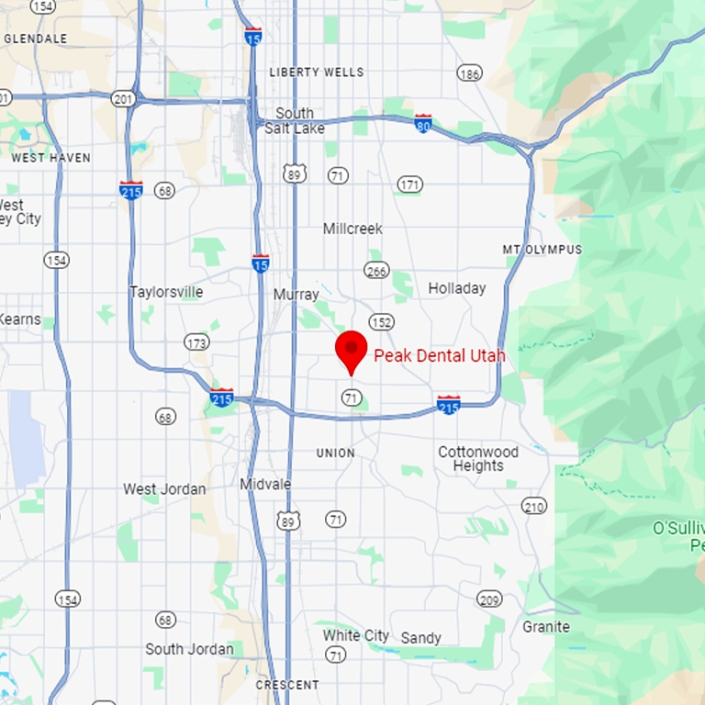TMJ

TMJ is a common condition that can impact your everyday life. From pain and discomfort to sleeping issues and eating problems, TMJ can be debilitating. Luckily, many people find relief through various treatment options.
TMJ is the name of a specific joint in your jaw. Unfortunately, there are several different disorders associated with this joint. If you experience one of these troubling conditions, you might consider seeing a sleep specialist.
Here at Dr. Jeff Buxton, we have what it takes to treat a wide variety of sleep problems caused by TMJ. With our comprehensive sleep testing solutions, we can determine if your TMJ disorder is impacting your sleep. From there, we can find the best treatment options for your specific needs. Call us today for the most trusted TMJ treatment in Murray, UT!
TMJ: Brief Overview
TMJ stands for temporomandibular joint. This joint is what connects your lower jaw to your skull. The term “TMJ” is also used to describe a set of disorders involving the joint. However, more and more people are starting to refer to these conditions as “TMDs” or temporomandibular disorders.
The TMJ allows you to open and close your jaw. It’s found on both sides of your head, right in front of your ears. You use this joint when eating, speaking, and opening or closing your mouth.
TMDs impact your jaw joints, including surrounding ligaments and muscles. Women are more prone to developing these conditions, and they’re more common in people between the ages of 20 and 40.
Symptoms of TMJ Dysfunction
In some people, TMJ dysfunction is only a minor inconvenience. For others, it has a huge impact on everyday life.
TMJ disorders typically involve the following symptoms:
Pain
Pain is by far the most common symptom of TMJ disorders. People often have pain in their jaw—and it can be extreme at times. However, the pain can also be located in other areas, such as the neck and face.
Stiffness
Those with TMJ also deal with a lot of stiffness in the jaw, neck, and face. This may be due to inflammation and constant wear and tear.
Discomfort
People with TMJ disorders often experience general discomfort in their jaw and surrounding area. This discomfort can interfere with sleep, work, and everyday life.
Limited Movement
Because TMDs involve the jaw joint, it’s also common to experience movement issues in this area. You may have a great deal of pain inhibiting you from correctly opening your jaw. This could impact how you eat or speak.
Other common symptoms:
- Locking of the jaw
- Dental problems
- Wearing down of teeth
- Ringing in the ear
- Headaches
- Clicking or popping sounds in the jaw
- Vertigo
- Shift in the jaw (called malocclusion)
It’s important to note that these symptoms can happen on one or both sides of the jaw.
Causes of TMJ
A TMJ disorder usually doesn’t have a single cause. Instead, several different factors can lead to the development of these conditions. In many cases, TMJ dysfunction happens after sustaining an injury to the jaw. However, other health conditions may also play a role, including:
- Arthritis
- Teeth grinding or clenching
- Stress
- Malocclusion, or poorly aligned teeth
Are you unsure what could be causing your TMD? See your doctor today to learn more information about your specific situation.
How TMDs Impact Sleep
TMJ dysfunction can have a significant impact on sleep. Take a look at why these disorders may cause these issues:
Frequent Pain
It can be very difficult to fall asleep and stay asleep when you’re experiencing pain in your jaw, face, and neck. That said, those with a TMD may constantly deal with sleep issues.
Different Sleeping Positions
Given the pain and discomfort you may have with a TMJ disorder, you may choose various sleep positions. Unfortunately, certain sleep positions can lead to a decrease in sleep quality. Some sleeping positions may also cause more pain, which can also impact sleep.
Connection to Sleep Disorders
To make matters worse, many TMDs are associated with sleep disorders, such as sleep apnea. This is because many people with TMJ disorders experience a blocked airway during sleep.
TMJ Disorders & Stress
Many experts will tell you that TMJ dysfunction is highly related to stress. Stressful situations can cause you to clench and tighten your jaw, leading to a worsening of symptoms. These stressful reactions can also happen when you sleep, which is why many TMJ disorders are characterized by waking up with a sore and stiff jaw.
Treating TMJ Disorders
There are a wide variety of different ways to treat TMJ dysfunction. First, your doctor may try medications like pain relievers and muscle relaxers. If you can’t find relief, nonsurgical interventions may be able to help, which include:
- Mouth guards
- Behavioral changes
- Physical therapy
- Trigger point injections
- Ultrasound therapy
- Transcutaneous electrical nerve stimulation (TENS)
While TMJ disorders can impact your sleep, consider visiting a sleep clinic. Here at Dr. Jeff Buxton, we can help determine how your TMD impacts your sleep. Our experienced team can run various tests to see if a mouthguard or another special device can help you sleep better. Call us today for dependable TMJ treatment in Murray, UT!

